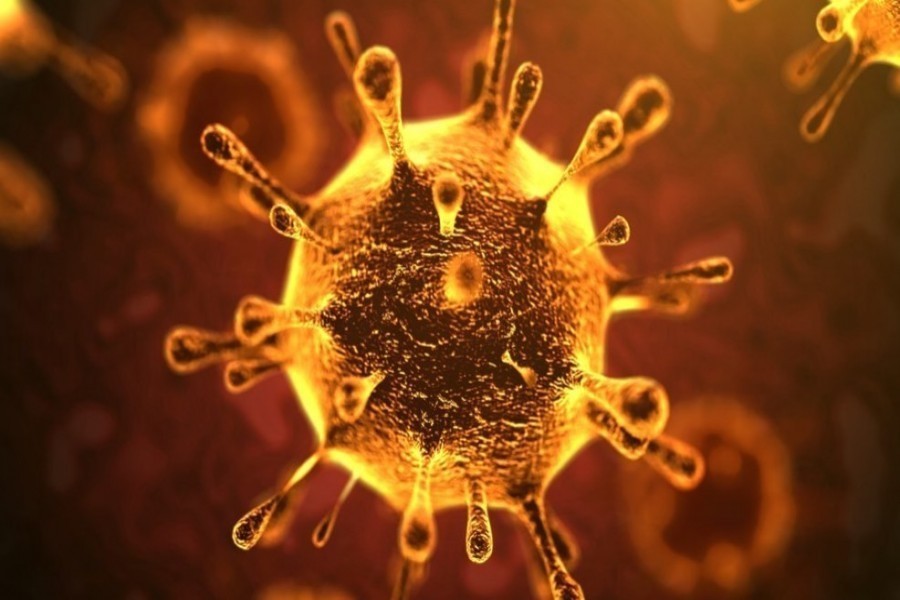As the curtain is about to fall on a year that has seen both unprecedented highs and lows in human spirit on account of the worst pandemic in history, the world people look forward to the New Year for a respite from the Covid-19. Until September before the detection of the new Covid-19 variant Omicron last month, the spirit was high and a sense of optimism prevailed that the disease may just end up turning into an endemic one like many others humans have become accustomed to live with. That sense of optimism has largely turned into one of déjà vu with the lightning dash of Omicron.
On Monday last, the global tally of cases was recorded at nearly 1.5 million and that of death at 6,433. In the past week, according to the Reuters, 900,000 cases were detected on an average each day with many countries recording new all-time highs. The winter really looks ominous because of the literally lightning speed of the new variant's spread. Some experts, however, reads in this development a positive replacement of Delta strain by Omicron because they think the less severity of the latter variant will lead to fewer and fewer deaths. With Omicron spreading 5-7 times faster than Delta, the milder strain will prove rather less fatal and ultimately end up in an endemic disease. They cite the example of countries such as Britain and America where 80 per cent of the new cases is detected. Monday's death toll was lower than the daily average toll of 7,317 against the average daily cases of 700,000 two months ago.
However others are not convinced of such dissipation of the disease. Sure enough, Omicron is less severe but still it has the potential to overwhelm not only the healthcare system in the poorer countries but also those of the developed and rich countries by dint of its sheer high incidence of cases. There is an ambiguity, though, concerning vaccination which proved effective against the more virulent Delta strain but, as is given to understand, Omicron can dodge vaccines to attack a person. However, a booster dose, when received, can limit Omicron's effect on a patient to the minimum. This is why people 60-year-old and above have been recommended to receive a booster dose after completion of the second dose. A few countries have now reduced the time gap for a booster dose to three months only.
The lurking danger, to many people's surprise, lies elsewhere. It is the unequal vaccine access for people in high-income and low-income countries. The first category of countries have administered at least one dose of vaccine to 67 per cent of their populations, the latter could not bring even 10 per cent of their peoples under one-dose vaccination coverage. The rich countries have more vaccines than they need and have already started or about to start booster jabs not only for the elderly people but for other age groups.
Here lies the problem. The rich nations may think immunisation of their populations will provide their safety. It will not. SARS-CoV-2 is now known for its high mutability. Omicron mercifully may have been a milder strain but there is no guarantee that a more virulent variety will not emerge through mutation if Covid-19 is left unattended in poorer and wider areas of the planet.
So in their own interests the richer nations should come forward to make available vaccines to the less fortunate people in countries unable to manufacture or procure those. Before the twin threats turn into three, the march of Covid-19 has to be checkmated. The good news is that oral pill has already received approval from the authorities in the US for treatment of the disease. If this proves effective against Omicron, its production should be raised many times higher in collaboration with facilities in as many countries as possible. For Bangladesh, the news is more assuring because already a local company has obtained the permission from the mother pharmaceutical in the USA for its production.
However, to go by the principle of preference for prevention rather than cure, the country now has to be on guard more than ever before. With 19 states including West Bengal of neighbouring India already reporting Omicron caseloads, the alarm bell has been rung. Bangladesh also has got two more cases in addition to the two women cricketers who have recovered from it. Here is a variant that at times shows no symptoms unless clinically tested.
In a situation like this, lowering the guard may prove suicidal. Carefree movements of people without masks can invite the kind of trouble countries like the UK, USA, Australia, France and several other European countries are now encountering---some of them being forced to impose fresh restrictions. Maintaining the WHO-approved health protocols is as important as it was during the surge of the Delta strain. But unfortunately, the Directorate General of Health Services and the ministry concerned seem to have taken the Omicron threat lightly. There should be no letup in the public campaign against the highly contagious variant in order to beat its threat. Let the prospect of 2022 brighten up.


